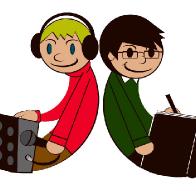Dear friends and colleagues,
There is one week left to apply for our Science Communication programme at Rhine-Waal University. You may want to have a look at:
- Students and staff introducing the course in a newly-produced YouTube clip
- Our Course Website
Compared to other programmes which often focus on either science journalism or on training STEM practitioners in communication skills, we have a comparatively wide approach which includes socio-political aspects and issues of institutional governance in science communication, evaluation and research methodologies.
Particularly the methods training goes much deeper than you may expect from what technically is an undergraduate programme. Quite a few enter our programme with previous work experience or education in natural or social sciences. Neither experience nor previous university degrees are formal entry requirements, though credit-transfers may shorten the study time.
Rhine-Waal is Germany's first fully international university. All of the degree programmes in our faculty are in English. 80% of our students are international. For the time being, we have the great privilege to offer our courses without asking for tuition-fees, which enables young people from meanwhile more than a hundred different countries to study with us. We are grateful that our course still does not require anyone to pay tuition fees -- regardless of where they are from. Unfortunately we expect this to change from next year due to a change in government. Hence this may unfortunately be your last chance to sign up in for free.
The diversity also guides our approach in research and teaching: being comparative about the different systems of science, media, and policy.
Our brand-new campus is located roughly half-way between Cologne and Amsterdam, close to the invisible borders between Germany, The Netherlands and Belgium. Cleves is a mid-size university town of 50 K inhabitants with a castle on top, around the corner of Nijmegen (NL) and in walking-distance to the Rhine. Living costs are about half as much as in London or Munich.
We have started to collect student projects here (still in beta). You may also be interested in previous media coverage on SciDev, The EuroScientist, or the AlphaGalileo Newsletter.
Applications by 15 July via uniassist (an external service-provider). Register first, then enter your basic data into the system. Then pick your course ("winter semester..."; "Bachelor"; "Kleve, HS Rhein Waal"; usually it should also work to simply search for "science communication" because ours is the only course of its kind in continental Europe).
Students who have done previous studies (not necessarily completed) can apply for credit transfer, which could reduce the duration of the course by up to a year.
Apart from the usual eligibility criteria for studying at a European university (mainly 12 years of school education), the only requirement for our programme is a good English language proficiency.
Thanks for sharing, best wishes
Prof. A. Gerber
--
Chair
International Science Communication,
Rhine-Waal University (RWU)
= = = = = = = = = = = = = = = = = = = = = = = = = =
Marie-Curie-Str. 1
#8, 2nd floor, room 011
47533 Kleve / Germany
Phone: +49 2821 806 73 641
Fax: +49 2821 806 73 160
E-mail: ag@hsrw.eu
Internet: hsrw.eu

